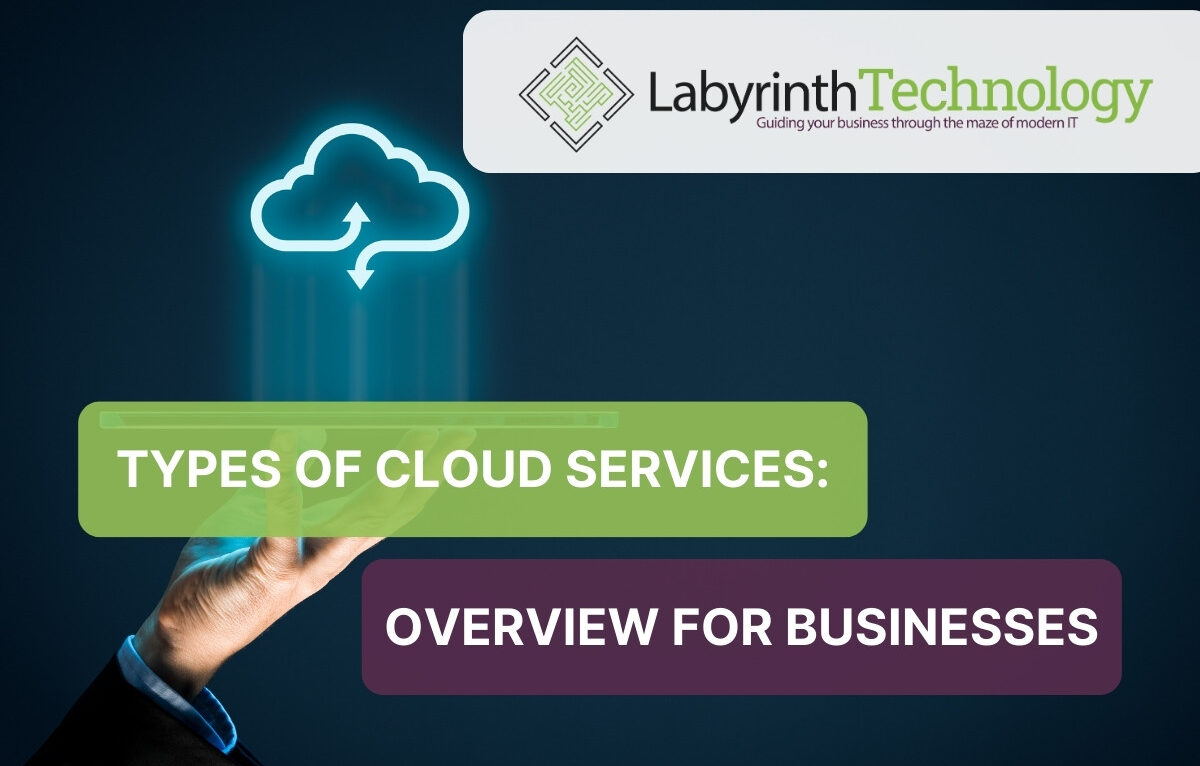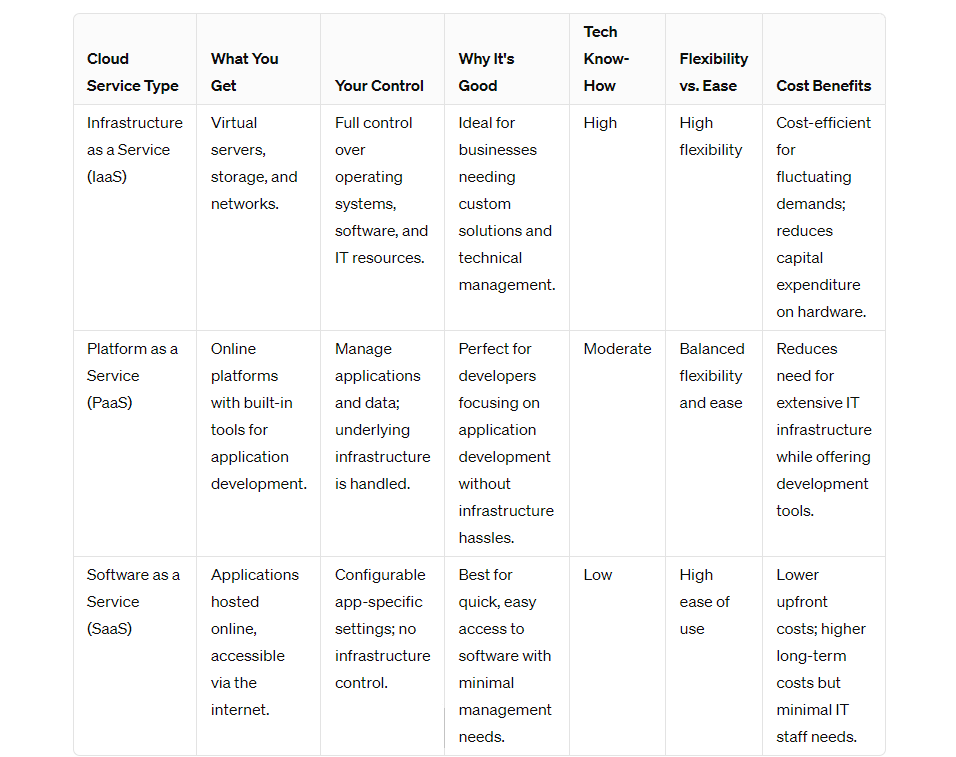
Cloud services represent a modern approach to managing and scaling business operations through internet-based computing resources. These services provide businesses of all sizes with access to computing power, storage, and applications without the need for substantial physical infrastructure or upfront investments. There are various types of cloud services available, allowing businesses to tailor solutions to their specific needs. Each type offers different levels of control, flexibility, and management, which can significantly impact the operational dynamics of a company.
Cloud services offer flexibility, enhance operational efficiency, and reduce costs by allowing companies to purchase only the resources they need and scale these resources as their business grows. Moreover, the ability to access services and data from anywhere at any time can significantly boost productivity, particularly in a world where remote working has become increasingly common.
This guide will help you understand the different types of cloud services available and how they can benefit your business. Let’s dive in.

What is IaaS?
Infrastructure as a Service offers businesses scalable computing resources via the internet, including servers, networking technology, storage, and data centre space. This service model allows companies to rent or lease these critical resources on-demand, providing a practical alternative to the costly procurement and maintenance of physical servers and data centres.
Who Typically Uses IaaS?
IaaS is particularly well-suited for start-ups and small to medium-sized enterprises (SMEs) that require robust IT capabilities but lack the capital to invest in extensive physical hardware. It’s also ideal for larger organisations looking to offload some aspects of their IT infrastructure, particularly those that experience fluctuating demands. Companies in sectors like e-commerce, which face variable traffic loads, benefit greatly from the scalability that IaaS provides.
Benefits for Businesses:
What is PaaS?
Platform as a Service offers a robust framework that supports the complete web application lifecycle: building, testing, deploying, managing, and updating within the same integrated environment. This service provides developers with a platform equipped with the necessary tools to create bespoke applications efficiently.
Who uses PaaS?
PaaS is particularly beneficial for businesses that need to develop unique software solutions quickly without the cost or complexity of buying and managing the underlying hardware and software layers. Tech start-ups, software development companies, and any business undergoing digital transformation often opt for PaaS because it allows them to focus on developing without the overhead of maintaining hardware, software updates, and other infrastructure management tasks.
Benefits for Businesses:
What is SaaS?
Software as a Service is a distribution model that delivers software applications over the internet. These applications, often referred to as web services, allow users to access and use software directly from a web browser without the need for internal infrastructure or high upfront costs. This model is ideal for businesses seeking efficient, scalable software solutions.
Who Typically Uses SaaS?
SaaS is incredibly versatile, making it suitable for businesses of all sizes, but it is especially beneficial for small to medium-sized enterprises (SMEs) and start-ups. These businesses often require quick, scalable access to software without the time or financial resources needed for significant hardware installations or long-term software licensing commitments. Larger enterprises also turn to SaaS for department-specific solutions or to deploy tools that can be managed separately from their large-scale IT operations.
Benefits for Businesses:
Beyond these primary services, cloud technology also offers solutions like Disaster Recovery as a Service (DRaaS) for enhancing data recovery processes and Database as a Service (DBaaS) for managing databases without needing to set up physical hardware.

When identifying a reliable cloud services provider, it’s crucial to focus on key characteristics that indicate their capability and trustworthiness. Here are some clear and straightforward characteristics to look for when identifying a reliable cloud services provider:
At Labyrinth Technology, we pride ourselves on being an exceptional cloud services provider, dedicated to delivering top-notch solutions tailored to meet the unique needs of your business. Our team of experts offers solutions that ensure seamless integration with your existing infrastructure, minimising disruption and maximising efficiency. With robust security measures, compliance with industry standards, and a commitment to transparency, we provide a service you can trust. Our scalable options grow with your business, ensuring you have the support you need at every stage.
If you’re looking for a cloud services provider that truly cares about your success and works tirelessly to ensure your IT needs are met, look no further than Labyrinth Technology. Contact us today for free initial consultation to discover how we can help elevate your business to the cloud and beyond.
Empowering London Businesses with Efficient IT Solutions to Save Time and Stay Ahead of the Competition.